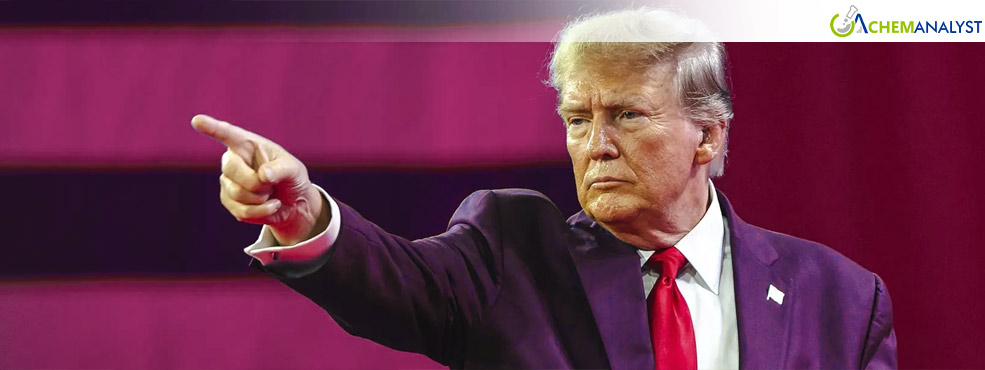Welcome To ChemAnalyst

Liquefied natural gas (LNG) companies are sounding the alarm over new U.S. rules that could cripple their ability to compete globally, according to the Financial Times. The Trump administration has imposed fees on Chinese-built vessels docking at U.S. ports, a move the LNG sector argues threatens a $34 billion industry critical to the president’s "energy dominance" agenda.
The new regulations, announced by U.S. Trade Representative Jamieson Greer on April 17, aim to apply pressure on China over perceived unfair trade practices while bolstering domestic shipbuilding. However, LNG exporters, heavily reliant on Chinese and foreign-built ships, warn that compliance will sharply increase costs and disrupt the supply chain. The industry received a temporary three-year delay to meet the rules, but the U.S. government is still pushing to phase in the use of U.S.-built vessels over a 22-year period.
Despite the phased approach, the American Petroleum Institute (API) argues that LNG producers simply cannot comply with the new requirements. There are no U.S.-built vessels capable of transporting LNG, and there is no extra capacity in American shipyards to meet the 2029 deadline, API said in lobbying letters sent to U.S. energy and interior secretaries this week, according to the Financial Times.
API contends that the restrictions would undermine U.S. producers' ability to dominate the global LNG market and could jeopardize America's status as a leading energy superpower. The group also fears future administrations could use similar tactics to suspend LNG export licenses, further complicating the industry’s future.
In addition to the LNG shipping concerns, API is urging the administration to exempt crude oil, gasoline, and liquefied petroleum gas from the maritime tariffs. The industry argues that the tariffs would disrupt a finely balanced supply chain, harming U.S. competitiveness in the global market.
While API acknowledges the need to address China’s trade practices and expand U.S. shipbuilding, they remain skeptical of the new rules’ feasibility. “We will continue working with USTR and the Department of Energy to support policies that benefit consumers and advance American energy dominance,” said Aaron Padilla, API’s vice president of corporate policy.
The Center for LNG’s Charlie Riedl also voiced concerns, stating that the measures could destabilize long-term contracts, raise costs for international buyers, and threaten U.S. leadership in LNG exports. "That’s why we have urged USTR to exempt LNG shipping and LNG carriers from this action entirely," he added.
The U.S. overtook Australia in 2023 to become the world’s largest LNG exporter, shipping 11.9 billion cubic feet per day—enough to meet the combined gas needs of Germany and France. The industry has plans to double its exports by the end of the decade, but these new rules could jeopardize that ambitious goal.
Under the new regulations, U.S. officials will impose a $50-per-ton fee on Chinese-owned vessels starting in 180 days, with the fee increasing by $30 per ton over the following three years. Vessels from other countries operating Chinese-built ships will face lower charges.
The rules have sparked widespread lobbying from U.S. industries, including farmers, who warn of higher freight costs. The oil and gas sector, a major donor to Trump’s campaign, has already secured key concessions, including exemptions from tariffs on oil and gas imports.
We use cookies to deliver the best possible experience on our website. To learn more, visit our Privacy Policy. By continuing to use this site or by closing this box, you consent to our use of cookies. More info.
